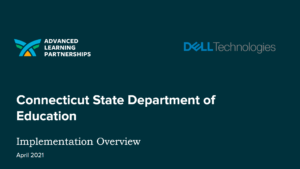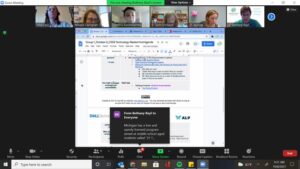When my oldest daughter was a baby I found a swollen lymph node at the base of her neck. As a new mom I worried about everything. Naturally, I did what a lot of new moms do—I WebMD’ed it. Armed with my sleep deprived, new mom Spidey Sense and the company of only my precious newborn cargo, I scoured the Internet for answers, which of course, I found…Carbohydrate Malabsorption. I called the pediatrician in a panic and grabbed the first possible appointment. When I got to the doctor’s office I laid out my case. But instead of thanking me for doing the heavy lifting on the diagnosis, the pediatrician sighed deeply and took my hands in hers. With excruciating patience she waited until my eyes met hers and then said,
“Listen to me. I went to medical school so you wouldn’t have to worry about carbohydrate malabsorption. Take your daughter home and enjoy her.”
Then she sent me home with many, many flyers for mom groups. There were outdoorsy mom groups and groups that met over lunch. Professional mom groups and ones that met to exercise together. Though how they gathered was different, ultimately, the idea was the same for all of them: networked communities translate to connection and ultimately, better ideas.
I often think about this story when working with our partners at ALP.
 We had our first conversations with the CT State Department of Education (CSDE) well over a year ago. CT’s purchase of technology through Dell’s Operation Connectivity program enabled ALP to engage with any CT school district interested in professional learning services free of charge. To better understand what challenges and opportunities were top of mind for CT school districts, ALP and Dell engaged CT superintendents in the form of a listening tour.
We had our first conversations with the CT State Department of Education (CSDE) well over a year ago. CT’s purchase of technology through Dell’s Operation Connectivity program enabled ALP to engage with any CT school district interested in professional learning services free of charge. To better understand what challenges and opportunities were top of mind for CT school districts, ALP and Dell engaged CT superintendents in the form of a listening tour.
This is what CT leaders shared:
- The use of technology in schools has increased quickly and exponentially this year…AND the need to ensure it is leveraged in a way that connects students to meaningful learning is paramount to CT’s efforts around teaching, learning, and equity.
- Site based and district leaders recognize the need to develop coherent approaches to technology integration at the school and district level…AND they would benefit from thought partnership and communities of practice to do so effectively.
- The CSDE is looking to build educator capacity to serve as technology coaches at the state level…AND would benefit from support to develop a framework for coaching to ensure a systems approach to its implementation.
- School librarians are a group CT would like to empower and would benefit from being “seen” as leaders and resources for meaningful technology integration…AND they may need support to see themselves that way.
- OER is a platform that is en route to being a powerful tool for educators…AND it would be helpful to connect to other states engaged in this work to grow CT’s network and toolbox.
Though ALP has and is continuing to partner individually with any district in CT who would benefit from additional professional learning services, we are also fiercely loyal to the belief that people and teams lead change. Helping others to grow networked communities is a huge part of our work. It was in that spirit that we embarked on a series of opportunities to grow innovative networking teams across the state.
 The first of these opportunities is a Technology Planning & Implementation Mastermind group. The concept of the Mastermind group is widely acknowledged to have originated from Napoleon Hill, author of Think and Grow Rich. Essentially, a Mastermind group* is any group of people who come together to share and solve problems in a supportive environment. In the case of the over thirty CT leaders that have come together, the problems they are solving range from leveraging technology for deeper learning to addressing cybersecurity needs, and creating district-wide technology integration plans with an eye toward sustainable systems and evolving workforce needs.
The first of these opportunities is a Technology Planning & Implementation Mastermind group. The concept of the Mastermind group is widely acknowledged to have originated from Napoleon Hill, author of Think and Grow Rich. Essentially, a Mastermind group* is any group of people who come together to share and solve problems in a supportive environment. In the case of the over thirty CT leaders that have come together, the problems they are solving range from leveraging technology for deeper learning to addressing cybersecurity needs, and creating district-wide technology integration plans with an eye toward sustainable systems and evolving workforce needs.
Our goals and how we go about shared challenges may look different, but all of our learning communities can benefit from coherence, non-siloed strategy, and connected practitioners. Actively pursuing a networked community inoculates us against fear and isolation and allows us to show up as the best version of ourselves for those we lead and serve.

